The growth of internet users has brought about social and economic benefits on a global scale. However, significant harms such as online violence, disinformation, and hate speech have also proliferated in these online spaces. Discriminatory gendered practices are shaped by social, economic, cultural, and political structures in the physical world and are similarly reproduced online across digital platforms. Uganda, too, has experienced rising rates of online harassment targeting both visible women as well as everyday users.
Online violence manifests during periods of political activity. In order to understand how, a report by Pollicy, a civic tech organisation in Uganda, with support from the National Democratic Institute (NDI), sought to identify and analyse the scale of online violence targeted at political candidates and high-profile individuals during the January 2021 general election in Uganda. The report also sought to determine how this online harassment might impact their use, expression and participation in the elections. For this purpose, researchers identified and monitored the accounts of 152 nominated candidates and 50 high-profile individuals during the campaign and election period on the two most widely used public platforms, Facebook and Twitter. Methodologies used include lexicon building focus group discussions, data scraping of publicly available profiles, qualitative data analysis, and development of a Machine Learning model to identify and tag instances of online violence and hate speech in both English and Luganda.
The main objective of this study was to assess the impact of online violence against women in politics (OVAW-P) in Uganda and determine how it might impact their use of digital solutions and social media platforms for expression and participation in the elections.
The following research questions were used as a guide towards achieving this research objective:
● How do women politicians in Uganda use social media platforms for campaigning during the scientific general elections?
● How does the use of social media platforms differ amongst men and women candidates?
● What evidence of OVAW-P exists on social media platforms and how does it manifest?
● What is the association between OVAW-P and factors such as gender, age, political party affiliation, frequency of social media use, and electoral results?
Key findings
Use of platforms
The use of social media platforms for engaging with voters and constituents by women politicians remains low in Uganda. On Twitter, men candidates generated twice as many tweets, averaging 31 total tweets and replies per account during December 2020, compared to their women counterparts (14 tweets).
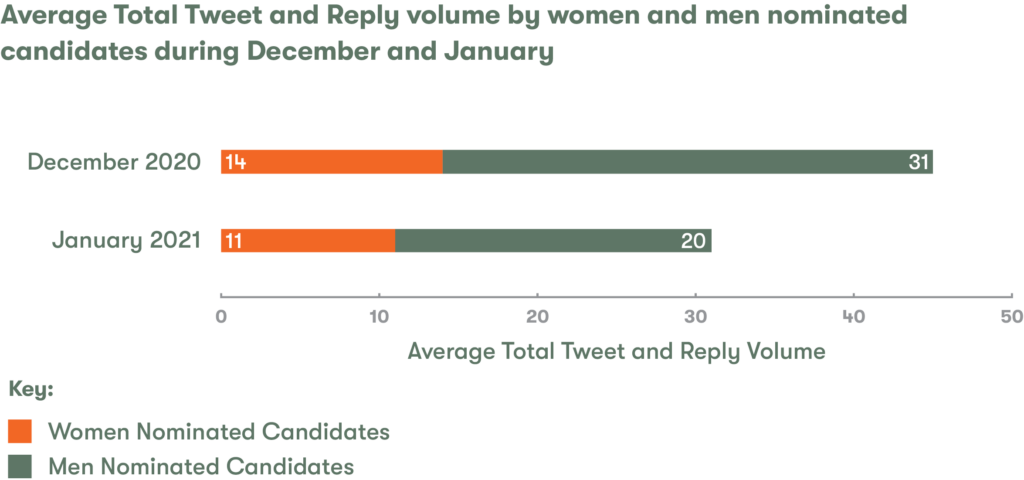
Platform preference
Women politicians in Uganda prefer using Facebook compared to Twitter for engaging with voters. Sixty-eight (68) percent of women’s Facebook accounts monitored were used at least once a week during the campaigns compared to 50 percent of men’s Facebook accounts.
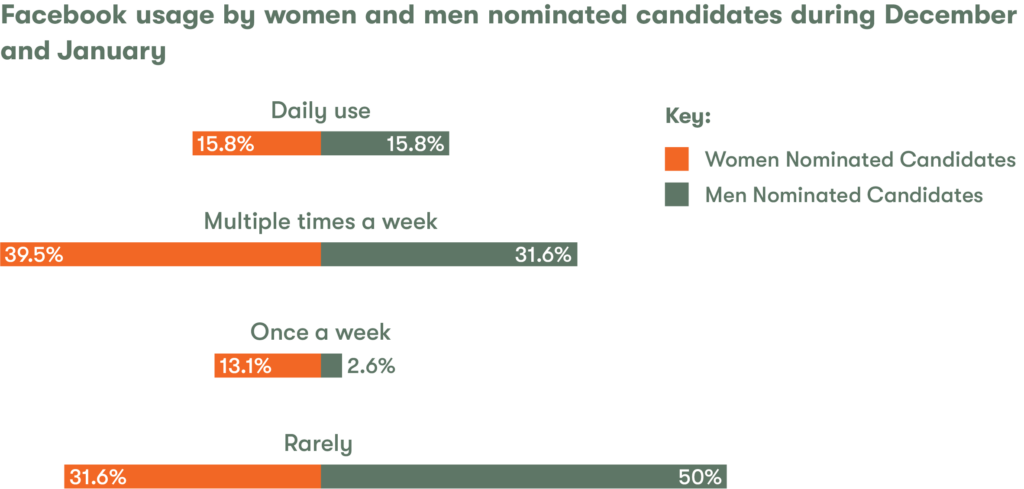
Manifestations of OVAW-P
The common categories of OVAW-P experienced included but were not limited to trolling, insults, body shaming, sexualised and gendered abuse. Men and women experience online violence differently. Women are more likely to experience trolling, sexual violence, and body shaming. Men are more likely to experience hate speech and satirical comments as compared to their women counterparts. This trend was similarly observed across both social media platforms monitored. This confirmed the assertion that when women candidates are attacked, the attacks were mostly gendered, sexualised, or about attributes that they can’t change while men candidates were attacked for their inability to lead. Eighteen percent of the accounts belonging to women experienced sexual violence compared to 8 percent of those belonging to men.
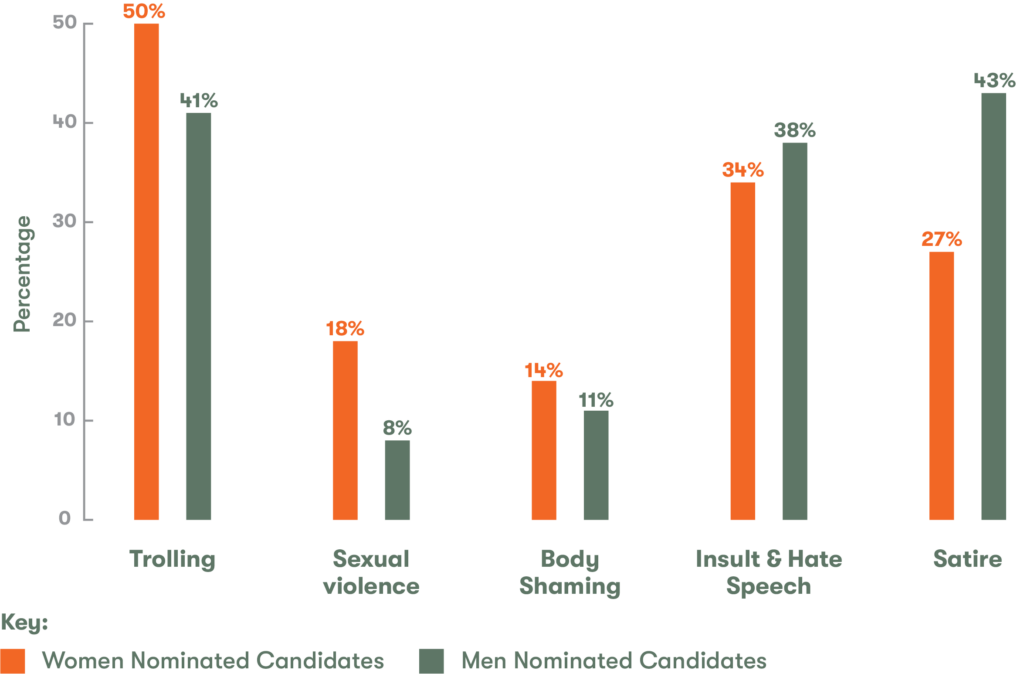
Whereas both men and women used online tools for engagement, greater online activity was linked with higher levels of online violence for women as opposed to men. And online violence was highly associated with older women and women belonging to Forum for Democratic Change (FDC), National Resistance Movement (NRM), and National Unity Platform (NUP).

The research also found that some individuals targeted a specific candidate or a specific gender. The diagram below shows that a higher number of unique accounts left comments or replies to men candidates (right cluster), compared to women candidates (left cluster). Fewer numbers of unique accounts posted comments or replies to men and women candidates (middle cluster). This could indicate that certain accounts target women specifically.
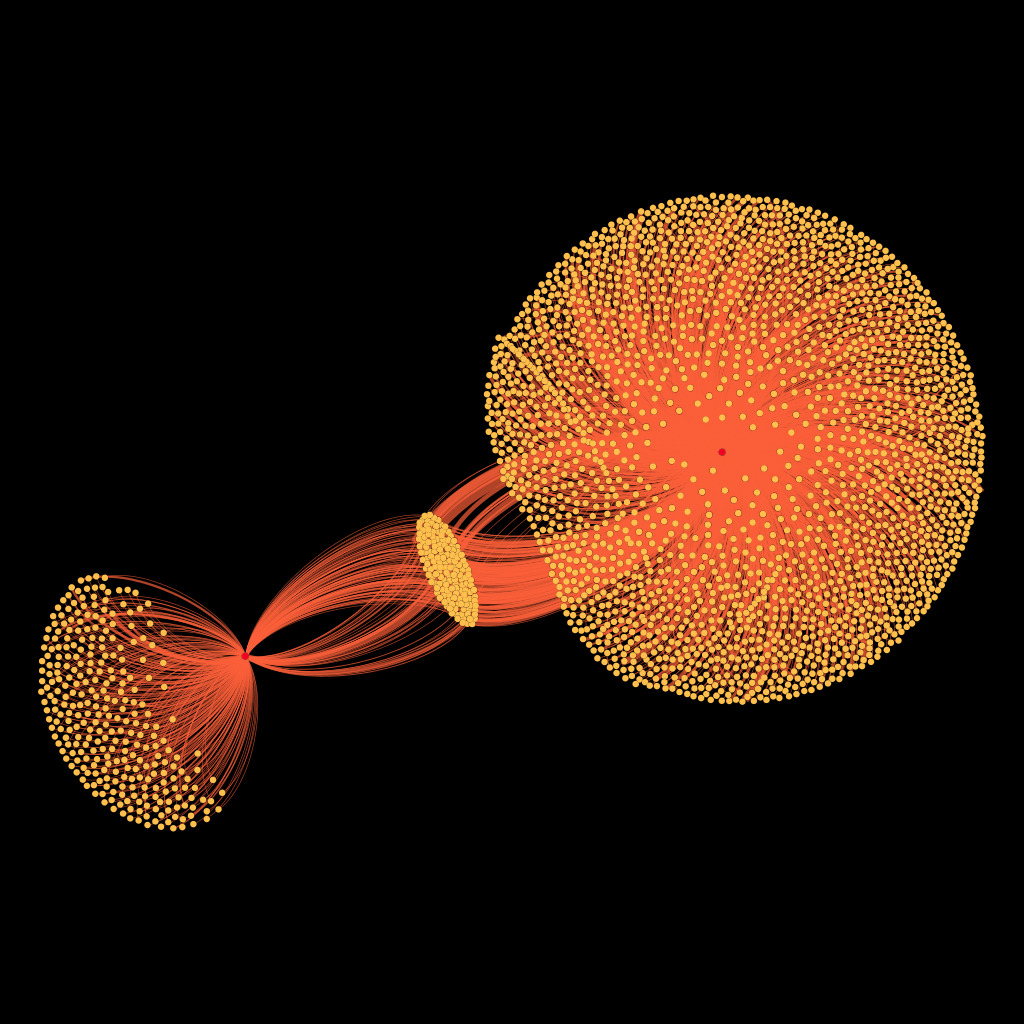
To evaluate individualised attacks, we mapped out perpetrators and their respective victims which revealed multiple clusters of individuals linked to specific individuals. These links are evidenced by the cone-shaped sections in the network diagram below with the smaller end of the cone representing the victim and the circular top of the cone representing the perpetrators attacking that victim. The larger the cone top the more perpetrators on the victim. Additionally, the density of certain cones within the network diagram also demonstrated the presence of repetitive and dedicated behavior among some perpetrators.
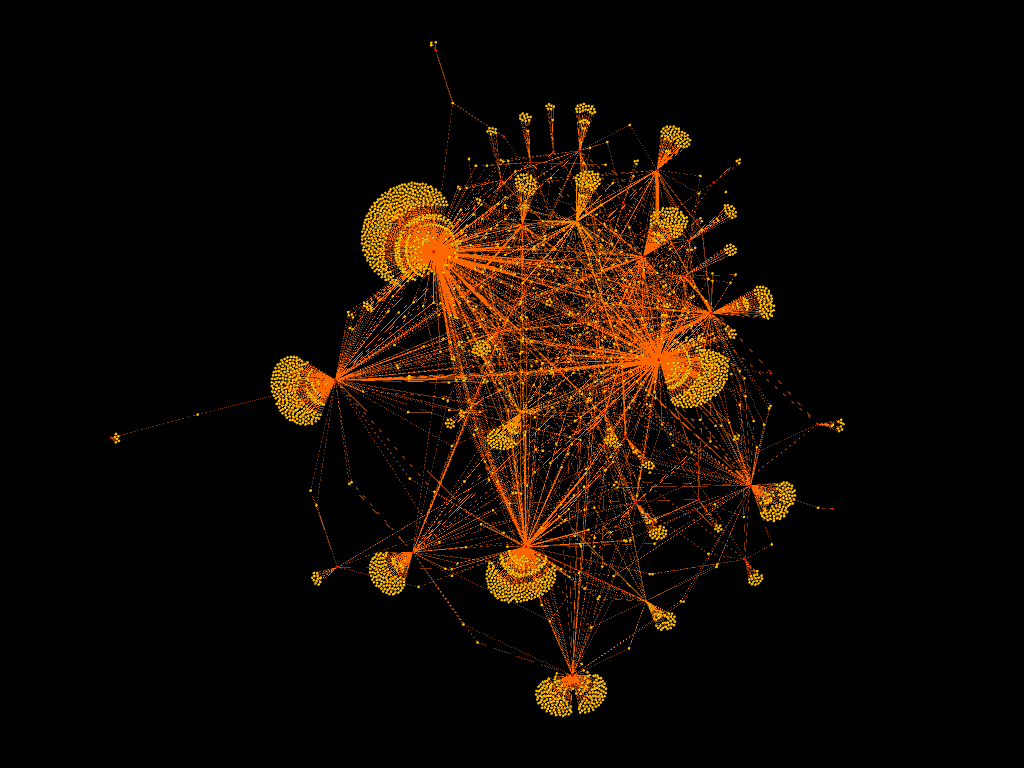
Recommendations
The report identified a number of recommendations for women actors, civil society, political organisations, the electoral management body, national processes such as Uganda Parliamentary Women’s Association (UWOPA), women’s groups, and telecom companies to implement. Generally, there is a growing need for systematic improvements in how technology companies address content moderation in terms of increasing their reliance on localised inputs for hate speech lexicons, improvement of reporting mechanisms as well as the adoption of local languages in content moderation. For civil society and governments, we recommend that extensive training be provided on digital safety and general usage of digital tools, especially among aspiring and incumbent women politicians. In addition to that, civil society organisations should increase research on online behaviors and online violence as well as outreach in order to de-stigmatise talking about violence.
Explore Pollicy’s interactive dashboard on amplified abuse and download the full report.
The opinions expressed in this article are those of the author(s) and do not necessarily reflect the views of SAIIA.
(Main image: Supplied)


